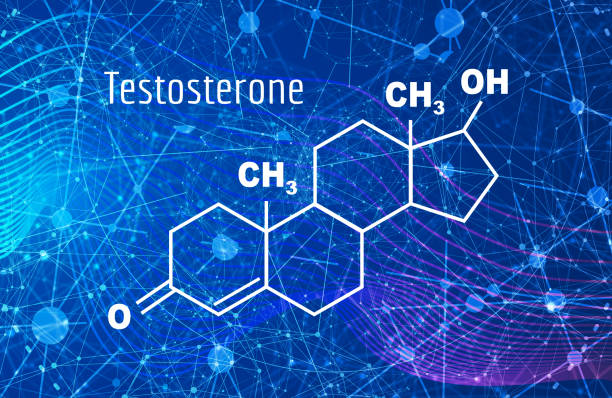A recent study has revealed that testosterone may have an important role in controlling immune response and lowering chronic inflammation.
It’s well known that women are more prey to auto-immune diseases than men, and a new study from West Virginia University has given clear evidence why: testosterone. Women actually have a 1 in 12 risk of suffering from common autoimmune diseases, whereas the risk for men is 1 in 20.
Image courtesy of steadyhealth.com
Testosterone has been the subject of a long-running series of popular articles on this site, many of which we recently collected together in an amazing FREE ebook on the subject. Download it here now.
Testosterone and Immune Health
Most people will know that men generally have much more testosterone than women – unless, that is, you’re talking about one of an increasing number of men suffering from hypogonadism (low testosterone).
Indeed, it’s perfectly reasonable to say that testosterone is the hormone most associated with masculinity. While it is also important to women’s bodies and their health, the increased levels of testosterone in the male body are responsible for the host of traits that make men men, and not women. Body hair, muscle mass, bone density, strength, aggression, dominance and competitiveness – increases in all of these things are associated with increased testosterone in men.
A less-than-optimal testosterone level can have serious consequences for a man’s health. Athletic performance and mental and sexual health will all be affected. A man with low testosterone will also be at higher risk of, among other chronic diseases, heart disease, diabetes and Alzheimer’s. Low testosterone may even make coronavirus symptoms worse, according to a new study.
Still, all things being equal, a man will have higher testosterone levels than a woman, and according to a new study in the journal Gastroenterology, this may explain why men have a lower incidence of auto-immune diseases. The research focused on inflammation and its relation to stomach cancer in particular.
“Stomach cancer is primarily caused by rampant inflammation,” said Jonathan Busada, an assistant
professor in the School of Medicine and researcher with the Cancer Institute. “The overarching theme of my lab is to understand what’s controlling the balance between a protective immune response, which is just targeting the infection, and a pathogenic immune response, which is like a toddler throwing a temper tantrum and damaging everything. It looks like androgens [ie. male hormones] may be really important in tipping that balance toward a protective response.”
The study focused on testosterone and also glucocorticoids, steroid hormones secreted by the adrenal glands. Glucocorticoids are not sex hormones and, therefore, levels do not generally differ between male and female. Glucocorticoids are “the chief anti-inflammatory hormones that your body produces,” Busada said. “You can think of them as the brake pedal to the immune system.”
Busada and his team looked at mice without either testosterone or glucocorticoids. It was observed that the males’ levels of inflammation increased as much as the females’, and that when testosterone was administered to the female mice, their inflammation vanished.
“We were able to completely rescue them from their stomach inflammation,” Busada explains. “We proved that androgens were the hormones giving male mice that double layer of protection from inflammation. In the females, the only anti-inflammatory hormone was glucocorticoids. In males, it could be either glucocorticoids or androgens. This study potentially explains why women have a much higher incidence of autoimmune and chronic inflammatory diseases.”
Download our amazing FREE ebook on testosterone now
One interesting question to be further investigated concerns why men are at greater risk of stomach cancer if they have this ‘double layer of protection’, where women only have the single.
“Persistent, smoldering inflammation over the course of many, many years is the fertile ground for stomach cancer to grow.” Busada said. “It’s an important, and understudied, human health issue.”
Could it be that decreasing testosterone levels as men age are driving stomach inflammation, and therefore putting older men more at risk? Earlier research suggested that women may derive some protection from their increased estrogen levels, which appear to affect the growth of dangerous H. Pylori bacteria. More research will be needed.

Don’t hesitate to email us at [email protected] for personalized coaching and a client questionnaire if you’d like DEDICATED tailor-made personal training on strength training, building muscle, losing fat, developing athleticism, and more — all to your liking, lifestyle, habits, and taste!
Otherwise, don’t forget to claim your FREE eBook detailing how to lose 20lb of fat while building muscle in 12 weeks! You can claim it here.
Alternatively, you can pick up a FREE eBook on fundamental strength principles offering an introductory workout program.











